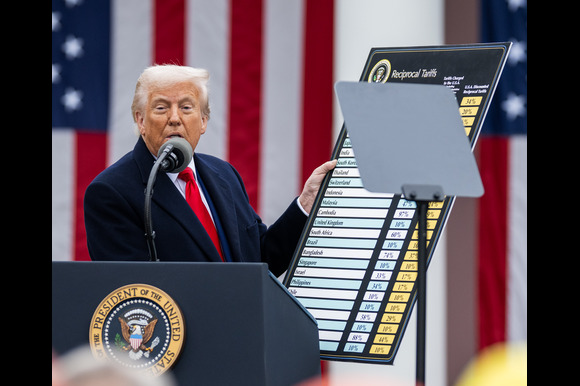Japan will prioritize “fairness” in its discussions with the United States regarding exchange rates, stated Prime Minister Shigeru Ishiba on Sunday, as bilateral trade negotiations attract global scrutiny amid President Donald Trump’s tariff initiatives.
During an appearance on the public broadcaster NHK, Ishiba suggested that Tokyo might increase its purchases of U.S. energy and expressed a willingness to address U.S. claims regarding non-tariff barriers affecting the Japanese automobile sector.
Trump, who unexpectedly participated in the initial round of U.S.-Japan talks on Wednesday and claimed “significant progress,” has expressed a desire for the discussions to encompass his allegations that Tokyo deliberately devalues its currency to provide its exporters with an unfair edge. Ishiba noted that specific conversations about currency policy would take place between Finance Minister Katsunobu Kato and Treasury Secretary Scott Bessent.
“We must approach this matter from a perspective of fairness,” Ishiba remarked when questioned about Japan’s potential response to U.S. requests for assistance in strengthening the yen, though he did not provide further details.
Japan, which refutes any claims of yen manipulation, has historically sought to maintain a strong yen to protect its export-driven economy, although it last intervened in the foreign exchange market the previous year to support its currency.
Kato is scheduled to visit Washington this week for a meeting of the Group of 20 finance ministers, coinciding with the spring session of the International Monetary Fund, and is anticipated to engage in bilateral trade discussions with Bessent.
Japan’s Energy Imports Could Be Enhanced
Some analysts suggest that Japan might leverage its substantial holdings of US Treasury securities, which exceed $1 trillion and are the largest globally, in trade discussions. However, Kato dismissed the idea of using these assets as a negotiating tool earlier this month.
“This matter relies on mutual trust between the two nations, as well as the stability of the global economy and the economies of both countries,” Ishiba stated when questioned about the potential reference to Japan’s US debt holdings during negotiations.
President Trump has imposed a 24 percent tariff on Japanese exports to the United States, although, similar to many of his tariffs, these have been suspended until early July. A 10 percent general tariff remains in effect, along with a 25 percent duty on automobiles, which are crucial to Japan’s export-driven economy.
According to a report from Nikkei Asia on Sunday, Japan is contemplating easing its auto safety regulations for imports as part of its tariff discussions with the US. Washington has long argued that Japan’s safety standards act as a non-tariff barrier, while Japan and various experts contend that American automakers do not produce vehicles that are well-suited for Japanese roads and driving conditions.
In response to these claims, Ishiba acknowledged the differences between US and Japanese traffic and safety regulations that need to be considered. “However, we must also ensure that our safety standards are not deemed unfair,” he remarked, indicating a willingness to commit to increased Japanese investment in the US, particularly in the energy sector.
Regarding liquefied natural gas, he noted that Australia is currently the largest exporter to Japan, with the US ranking fourth. “There is potential for an increase in this area, but the key question is whether the US can provide energy consistently,” he added.






